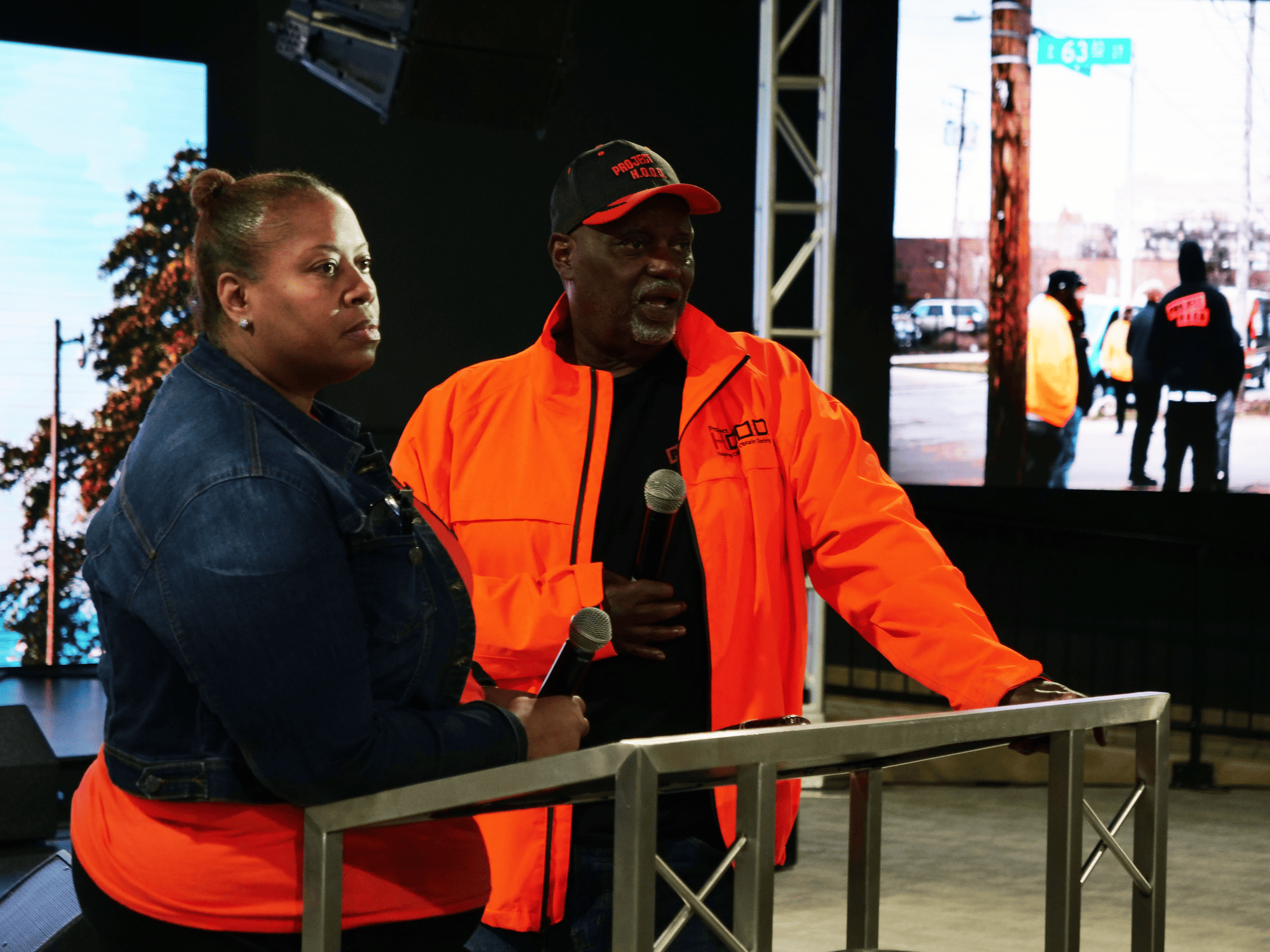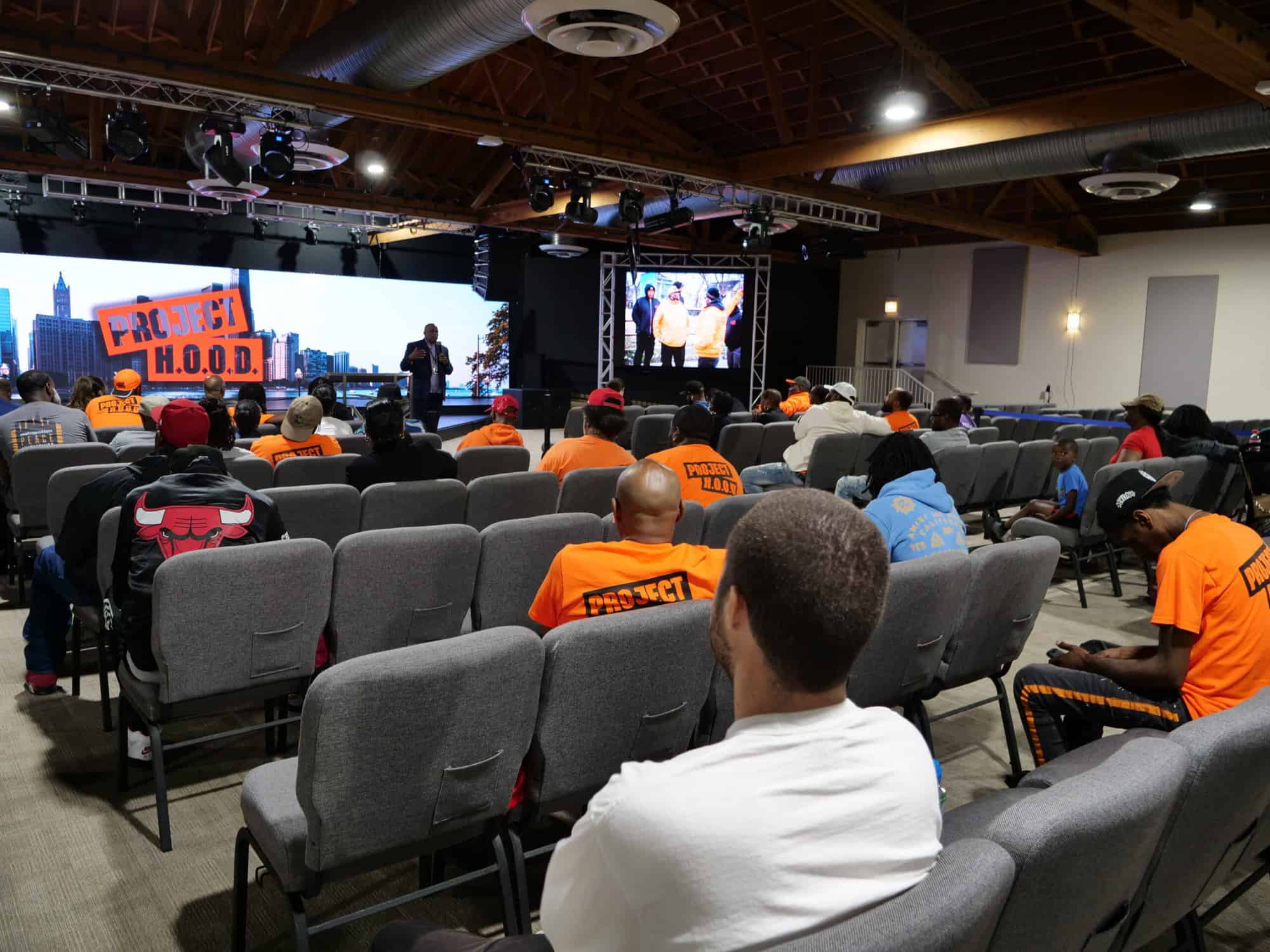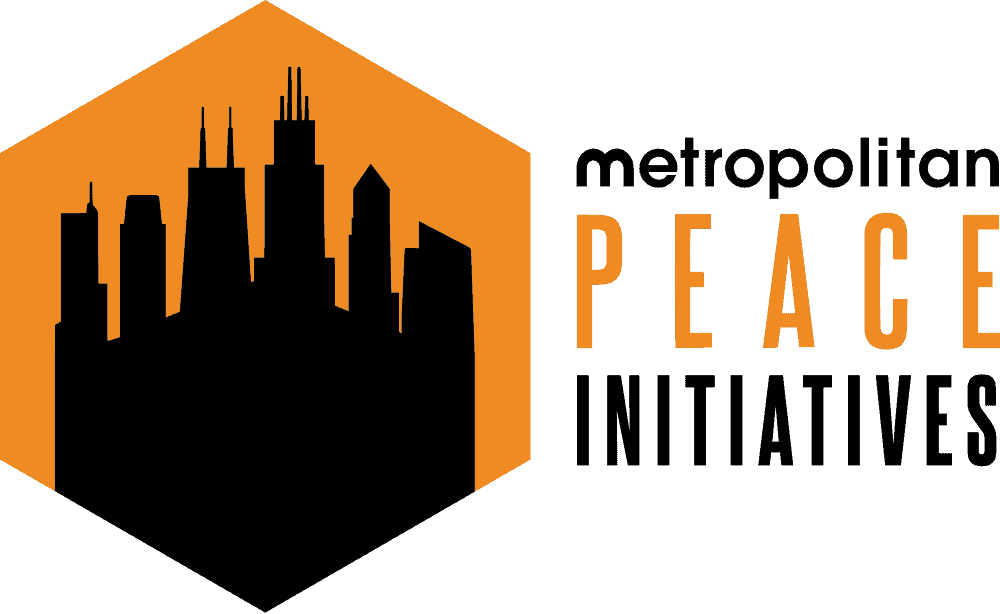Project H.O.O.D. Hosts Community Violence Advocacy Event in Woodlawn

Residents, representatives from the offices of elected officials and community violence intervention (CVI) leaders gathered in Woodlawn on September 9 for a discussion on local street outreach efforts to reduce gun violence. The Saturday event, hosted by Project H.O.O.D., drew dozens of participants, including representatives from the offices of State Sen. Mattie Hunter, U.S. Sen. Tammy Duckworth, U.S. Rep. Jonathan Jackson and Alderwoman Jeanette Taylor (20th Ward).
James Highsmith, Director of Project H.O.O.D.’s Violence Impact Team (VIT), and LaDonna Peppers, Assistant Director of Project H.O.O.D.’s VIT, each spoke on the significance of the FLIP program. FLIP stands for Flatlining Violence Inspires Peace. It’s a five-year effort to create a safe presence in hot spots throughout the city.
“I’ve been doing violence prevention since 2006, out of all the tools and all the strategies… our FLIP Program is the most effective and the most powerful program that we have,” said Highsmith. “It gives us a direct connection to the brothers and sisters that are most likely to get shot or do the shooting. Also, it gives us a direct connection to the neighborhood block-by-block. Because of those direct connections we’re able to change the whole trajectory of shootings and killings in our neighborhood.”
Most recent data shows the number of shootings in Woodlawn decreased by about 27 percent in 2022. Homicides were down about 35 percent.
“We do this work without bullet-proof vests,” said Peppers. “We show up with our hearts and our voices and say ‘This isn’t right. Let’s make it right.’ We talk people down off the ledge and we help them figure things out — without somebody losing their life.”

Speakers included Dr. Franklin Cosey-Gay, PhD, Director of the University of Chicago Medicine’s Violence Recovery Program (VRP). The VRP helps trauma patients and their families, providing everything from wraparound care, crisis intervention, psychological first aid, social support, case management and connection to community-based social services.
“We know that a part of the issue is not simply about what individuals are doing to each other, it’s actually root causes,” said Dr. Cosey-Gay. “Those root causes are directly represented and tied to policies and practices that are tied to race and racism that go on for generations. We know real health is about having institutions, economic anchors [like Project H.O.O.D.], housing, access to food and access to jobs. So, what you all are doing here represents real recovery. Public health is about collective responsibility. My institution and hospital cannot do this kind of work without all of you here in this room.”
The event was coordinated and emceed by Project H.O.O.D. Government & Community Affairs Director Arenda Troutman. Project H.O.O.D. is one of 13 Chicago organizations that make up Communities Partnering 4 Peace (CP4P), a coalition of non-profit organizations focused on gun violence prevention across 27 Chicago neighborhoods.
